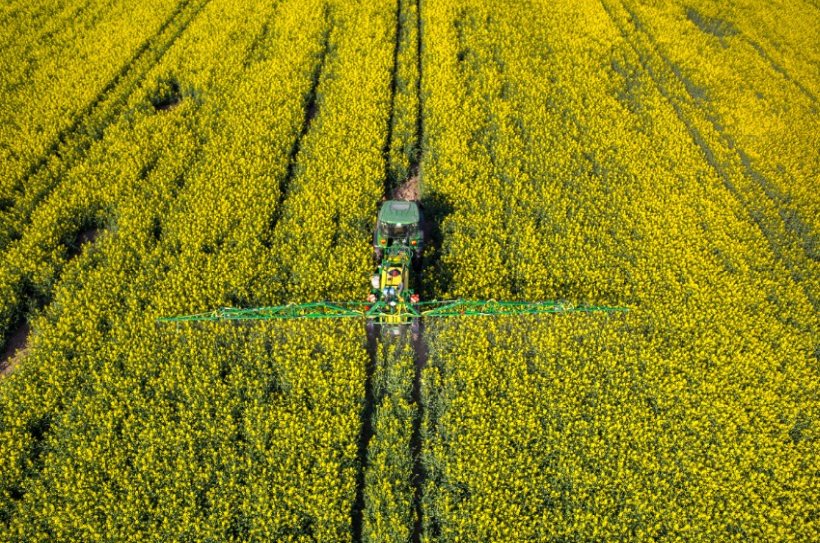Science 'often slow' to be applied at farm level, report concludes

An action plan to boost British farming's productivity has been launched in the House of Lords, with the report criticising that science is 'often slow' to be applied at the farm level.
The Application of Science report puts forward recommendations needed to deliver science more quickly to tackle food security, net zero and biodiversity challenges.
One of the key insights from the report is that the path from scientific discovery to on-farm application in the UK is 'fragmented'.
Unlike France, Germany, US and most other industrialised countries, the UK does not have a public or private entity clearly responsible for application of science in agriculture.
The fragmentation is most noticeable for innovations that change farming practices, for example crop rotation, grazing management and timing of field operations.
For innovations that involve purchasing new inputs or services, agribusiness and the agri-tech centres have led the way, but for changes in farming practices there is 'no clear champion'.
The report seeks to tackle these challenges, with a series of recommendations for policy makers and agricultural leaders which aim to tackle the strategies and structures holding agriculture back.
Among the report’s key recommendations are that food security should be considered by the government as a public good and included in the “public money for public goods” approach.
Funding should also be prioritised by the UK government to agricultural extension and the delivery of scientific knowledge.
And national co-ordination should be encouraged between demonstration farms throughout the UK, the report says.
“Britain has some of the best scientists in the world, but unfortunately that science is often slow to be applied at the farm level,” said Lord Curry of Kirkharle, who chaired the Application of Science working group.
“It is essential that we ‘speed up’ the adoption of relevant science if we are to respond to government priorities and take advantage of market opportunities at home and abroad."
The report also calls for the UK government to establish a “What Works Centre”, streamlining the evaluation and sharing of agri-food research.
This centre should co-ordinate closely across the UK agricultural sector, the report explains.
Professor James Lowenberg-DeBoer, of Harper Adams University and lead author of the report, added: “Some other aspects of the report were intensely debated.
"But it was obvious to everyone that food security is essential for a functional modern society.”
What does the report call for?
Among the report’s key recommendations are:
• Food security should be considered by the UK government as a public good and included in the “public money for public goods” approach.
• Funding should be prioritised by government to agricultural extension and the delivery of scientific knowledge.
• UK agriculture should attract talent from all sectors of society.
• Universities with strong local and regional agricultural interests should consider making it part of some academic staff’s roles to take knowledge out to farms and farmers.
• Electronic communication methods should be used alongside in-person events to share knowledge.
• National co-ordination should be encouraged between demonstration farms throughout the UK.
• The UK government’s review of the Agri Tech Centres should consider establishing a single management structure to build on their shared vision, improve cross-sector working, achieve greater efficiencies and influence.
• The UK government should establish a “What Works Centre”, streamlining the evaluation and sharing of agri-food research. This Centre should co-ordinate closely across the agricultural sector.
• Finally, agricultural research funding should have a stronger problem-solving and collaborative focus with the formation of a specific Agri-Food committee.








